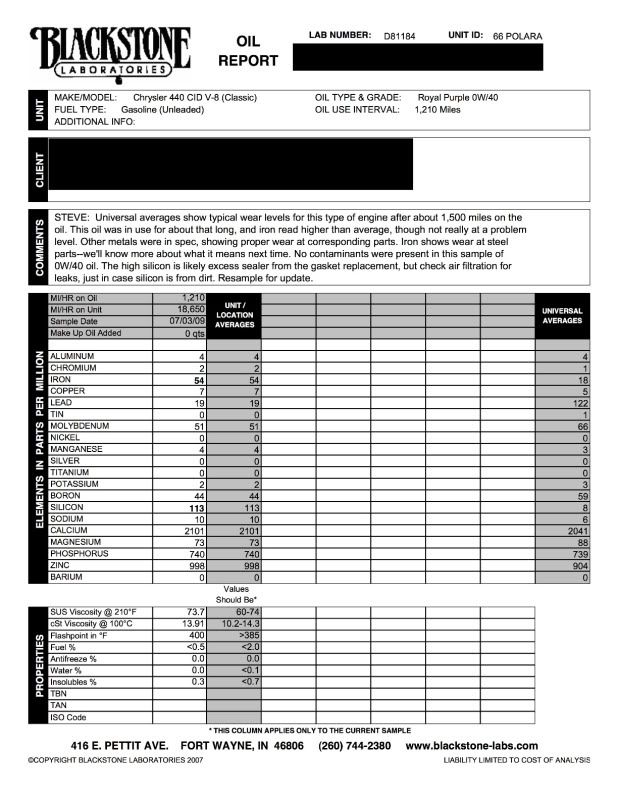dnewton3
Staff member
One or two UOA(s) could let us know if insolubles would spike to "non-normal" levels contrasted to the universal averages. Also, the vis would let us know if it were significantly thinning or thickening from the heat.
He's planning on year-round use, so perhaps a plan of 10w-30 for winter and 15w-40 summer would suffice? Again, his annual mileage and OCI plan can either be complimentary, or contradictory ...
I don't have any expierience with the 454 BBC, but I've read good things about it. The lube system is fairly robust, is it not?
He indicates that his engine temps are 200F on flats, and 212 climbing hills. That's not very hot, and quite reasonable. Dino oils are certainly safe FOR SHORT BURSTS up to 250 deg F, although I would not want to sustain that temp long. Still, pulling an occasional hill isn't going to kill the sump in one season.
If his annual milegae is less than 5k miles, I suspect his UOA would confirm that either 10w-30 or 15w-40 would both work equally well. The issue really becomes that of cold starts for winter.
I suspect that the winter time advantage of 10w-30 HDEO would outweigh the summer time advantage of 15w-40. He could use a 5w-40, but for short OCIs, that's just overkill. In fact, as you know, the T5 in 10w-30 pumps just about as well as the T6, for much less cost. The engine would not know the difference, but his wallet would.
He's planning on year-round use, so perhaps a plan of 10w-30 for winter and 15w-40 summer would suffice? Again, his annual mileage and OCI plan can either be complimentary, or contradictory ...
I don't have any expierience with the 454 BBC, but I've read good things about it. The lube system is fairly robust, is it not?
He indicates that his engine temps are 200F on flats, and 212 climbing hills. That's not very hot, and quite reasonable. Dino oils are certainly safe FOR SHORT BURSTS up to 250 deg F, although I would not want to sustain that temp long. Still, pulling an occasional hill isn't going to kill the sump in one season.
If his annual milegae is less than 5k miles, I suspect his UOA would confirm that either 10w-30 or 15w-40 would both work equally well. The issue really becomes that of cold starts for winter.
I suspect that the winter time advantage of 10w-30 HDEO would outweigh the summer time advantage of 15w-40. He could use a 5w-40, but for short OCIs, that's just overkill. In fact, as you know, the T5 in 10w-30 pumps just about as well as the T6, for much less cost. The engine would not know the difference, but his wallet would.
Last edited:


